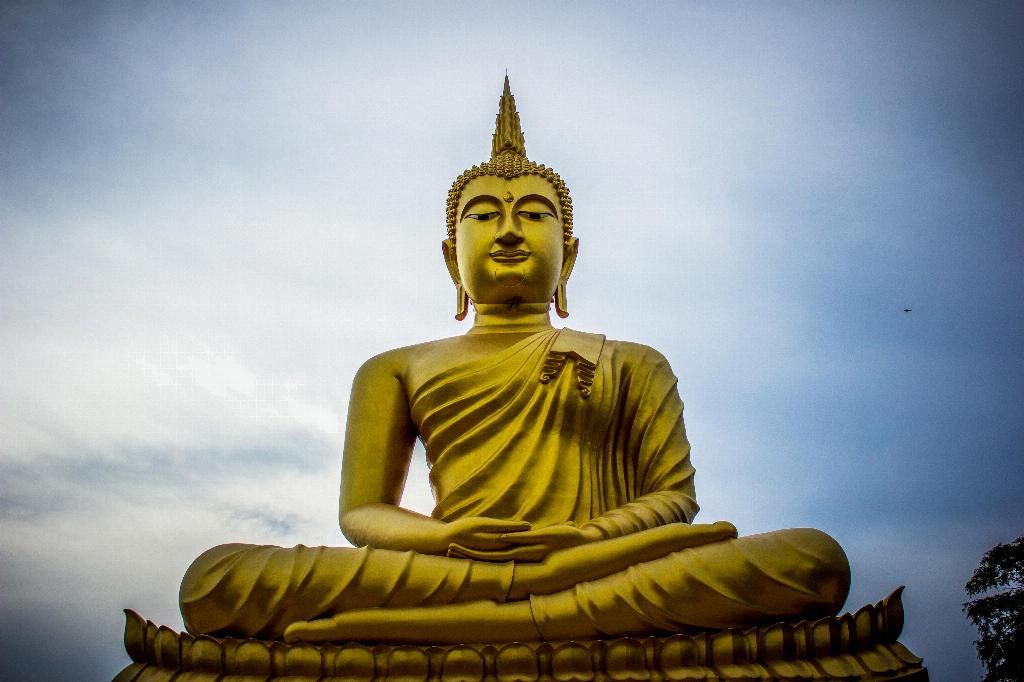When it comes to Eastern philosophical concepts, two terms that often come to mind are Yin and Yang and Zen. These concepts have gained popularity in Western culture, but what exactly do they mean? Are they interchangeable? In this article, we will explore the meanings behind Yin and Yang and Zen, their origins, and debunk any misconceptions about their connection.
Understanding Yin and Yang
Yin and Yang are terms deeply rooted in traditional Chinese culture and philosophy, which later became closely associated with Taoism. Yin represents the feminine, dark, passive, and cooling aspects, while Yang represents the masculine, bright, active, and warming aspects. Together, they form a complementary and interconnected duality, reflecting the constant balance and harmony in the universe.
The symbolism of Yin and Yang in Chinese philosophy is profound. It emphasizes the concept of harmony between opposing forces, such as light and dark, good and evil, and tranquility and chaos. It teaches us that these opposing forces are interconnected and interdependent, and that maintaining a balance between them is crucial for overall well-being.
Exploring Zen Buddhism
Zen Buddhism, on the other hand, originates from the teachings of Gautama Buddha and is deeply rooted in meditation and mindfulness. Zen practitioners seek to achieve enlightenment through direct experience rather than solely relying on scriptures or teachings. Zen emphasizes the importance of being present in the moment, cultivating awareness, and letting go of attachments and distractions.
Key principles and teachings of Zen include the practice of zazen (seated meditation), the concept of satori (the moment of enlightenment), and the use of koans (paradoxical riddles or questions) to provoke insight and enlightenment. Zen encourages individuals to let go of dualistic thinking and experience the world directly, beyond words and concepts.
The concept of mindfulness, a key aspect of Zen, involves being fully present and aware in each moment without judgment. It helps individuals cultivate a deeper understanding of themselves and the world around them, ultimately leading to greater clarity, compassion, and inner peace.

Comparing Yin and Yang with Zen
While both Yin and Yang and Zen share similarities in their teachings, it is important to note their distinct differences. Yin and Yang focus on the balance and interplay of opposing forces in the universe, whereas Zen Buddhism emphasizes personal enlightenment through meditation and mindfulness.
Yin and Yang are primarily associated with Taoism, while Zen is a concept within Buddhism. While they may both originate from ancient Chinese culture, they developed within different religious and philosophical traditions.
Debunking the Connection: Does Yin Yang Mean Zen?
Contrary to popular belief, Yin and Yang do not directly mean Zen. While they share some common principles, they are distinct concepts that should not be confused with one another. Yin and Yang represent a broader philosophical framework within Taoism, whereas Zen is a specific school of Buddhism with its own unique practices and principles.
By understanding the origins and meanings of Yin and Yang and Zen, we can appreciate the depth and richness of these concepts in their respective traditions. It is important to approach each philosophy on its own terms and not conflate them.
In conclusion, Yin and Yang and Zen are separate and distinct concepts within their respective Chinese and Buddhist traditions. While they may share similarities in their teachings, they represent different aspects of philosophy and spirituality. By delving into the meanings and origins of these concepts, we can gain a deeper understanding and appreciation for their unique contributions to Eastern wisdom.
For further reading and exploration, please refer to the following resources and references:
[List resources and references here]
